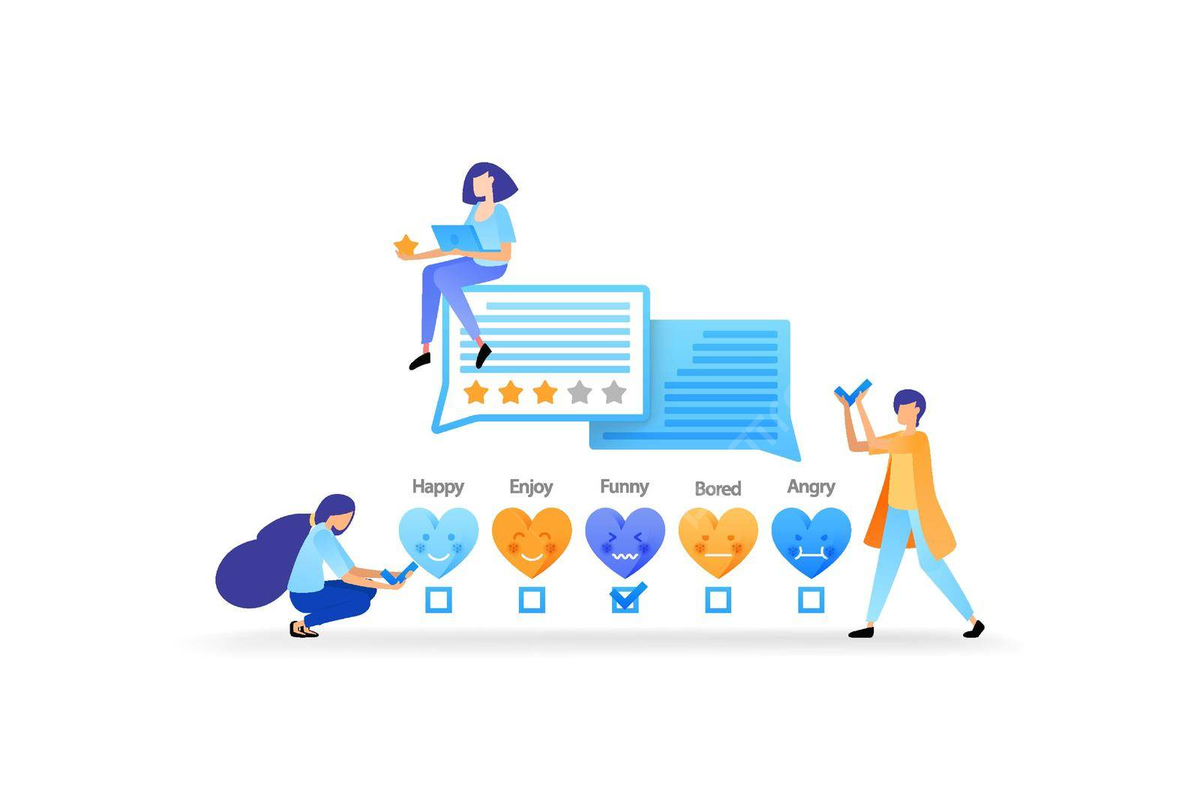Ex Employee Rating Matter! As an employer, you understand the importance of your Glassdoor rating in attracting top talent. But have you considered the untapped potential of your ex-employees in boosting that crucial score? Contrary to popular belief, former staff members can be your most valuable asset in cultivating a positive online presence. With 70% of ratings originating from ex-employees and their tendency to provide more balanced reviews, engaging this group is key to improving your company’s reputation. By leveraging a community platform and understanding the nuances of review processes, you can harness the power of confirmation bias to enhance your Glassdoor rating strategically and ethically.
The Power of Ex-Employee Sentiment
Trusting Former Employees for Authentic Reviews
When it comes to boosting your Glassdoor rating, you should consider the untapped potential of your ex-employees. Surprisingly, 70% of ratings on platforms like Glassdoor and Ambitionbox come from former staff members. This statistic underscores the significant impact ex-employees can have on your company’s online reputation.
The Advantages of Ex-Employee Reviews
Ex-employees often provide more balanced and nuanced feedback compared to current staff. As time passes, their sentiments tend to normalize, resulting in fewer harsh reviews. This emotional distance allows for a more objective assessment of their work experience, potentially leading to higher-quality reviews that accurately reflect your company’s strengths and areas for improvement.
Navigating Review Challenges
It’s important to note that reviews on Glassdoor typically take 15-25 days for approval. Additionally, the platform has safeguards in place to detect multiple reviews from a single IP address, which can backfire if companies attempt to artificially inflate their ratings. By leveraging ex-employee sentiment, you can avoid these pitfalls and generate authentic reviews that resonate with potential candidates.
Maximizing Participation and Impact
Given that participation rates among current employees are relatively low, tapping into your ex-employee network can significantly increase the volume and diversity of reviews. This approach not only helps to boost your overall rating but also provides a more comprehensive picture of your company culture and work environment to prospective employees.
Why Ex-Employees Provide More Balanced Reviews
When seeking authentic insights about a company’s work environment, you’ll find that ex-employees often provide the most balanced and reliable reviews. This phenomenon stems from several factors that contribute to a more nuanced perspective.
Time for Reflection
After leaving a company, former employees have the opportunity to step back and evaluate their experiences objectively. This distance allows them to consider both positive and negative aspects of their tenure, resulting in more balanced assessments. You’ll notice that the initial emotional responses often mellow over time, leading to reviews that are less likely to be overly harsh or biased.
Freedom from Current Pressures
Ex-employees no longer face the day-to-day pressures of their former workplace. This liberation enables them to provide honest feedback without fear of repercussions. You can trust that their reviews are less influenced by immediate workplace dynamics or concerns about job security, resulting in a more accurate representation of the company culture.
Comprehensive Perspective
Having completed their journey with the company, former employees can offer a complete view of their experience. They’ve witnessed the full cycle of employment, from onboarding to exit, allowing you to gain insights into long-term career prospects and company stability. This comprehensive outlook contributes to more balanced and informative reviews that can help you make informed decisions about potential employers.
By considering reviews from ex-employees, you’re tapping into a valuable resource of balanced, thoughtful feedback that can provide a more accurate picture of a company’s strengths and weaknesses.
How to Build an Ex-Employee Community
Building a thriving ex-employee community requires careful planning and execution. Here’s how you can create a robust platform that fosters engagement and encourages positive Glassdoor reviews:
Define Your Primary Objective
Start by establishing a clear purpose for your ex-employee community. Whether it’s maintaining professional connections, sharing industry insights, or promoting your employer brand, a well-defined objective will guide your community-building efforts. This focus will help you create relevant content and activities that resonate with former staff members.
Leverage “Power Members” for Engagement
Identify and engage your most active and influential ex-employees. These “power members” can help drive conversations, share valuable experiences, and encourage participation from others. Reach out to them personally, acknowledging their contributions and asking for their support in growing the community. Their involvement can significantly boost overall engagement and attract more members.
Create Interest-Based Subgroups
Segment your community into smaller, interest-based subgroups to facilitate more targeted interactions. These could be based on departments, job roles, or specific projects. By allowing members to join groups that align with their expertise or interests, you’ll encourage more meaningful discussions and connections. This approach also helps in creating a sense of belonging within the larger community.
Remember, building a successful ex-employee community takes time and consistent effort. By focusing on these key strategies, you’ll create a platform that not only keeps former employees connected but also potentially improves your Glassdoor ratings through more balanced and thoughtful reviews.
Best Practices for Soliciting Ex-Employee Reviews
Timing Is Everything
When reaching out to former employees for reviews, consider the timing carefully. Wait at least 3-6 months after their departure to allow emotions to settle. This cooling-off period often results in more balanced and thoughtful feedback. Remember, ex-employees tend to provide more nuanced reviews as their sentiments normalize over time.
Craft a Personalized Approach
Tailor your outreach to each individual. Acknowledge their contributions and express genuine interest in their post-employment experiences. A personalized message demonstrates respect and increases the likelihood of a response. Be sure to emphasize the value of their honest feedback for improving the workplace for current and future employees.
Provide Clear Guidelines
When soliciting reviews, offer clear instructions on the process. Inform ex-employees about platforms like Glassdoor and Ambitionbox, and provide direct links to your company’s profile. Explain that reviews typically take 15-25 days for approval. Encourage authentic responses by reminding them that multiple reviews from the same IP address can be flagged as suspicious.
Respect Privacy and Anonymity
Assure former employees that their feedback will remain anonymous. Emphasize that you’re seeking candid insights to enhance the work environment, not to identify individual respondents. This approach fosters trust and encourages more honest, comprehensive reviews.
Follow Up Thoughtfully
After the initial request, send a gentle reminder if you haven’t received a response. However, limit follow-ups to avoid appearing pushy. Express gratitude for their time and consideration, regardless of whether they choose to leave a review.
FAQs on Boosting Your Glassdoor Rating with Ex-Employees
Can ex-employees really help improve our Glassdoor rating?
Absolutely. Ex-employees are a valuable resource for enhancing your Glassdoor presence. Approximately 70% of ratings on Glassdoor come from former employees, making them a crucial demographic for your company’s online reputation. Their perspectives often provide a more balanced view of your organization, as their sentiments have typically normalized over time.
How long does it take for reviews to appear on Glassdoor?
Glassdoor’s review approval process typically takes 15-25 days. This delay allows for thorough vetting of submissions, ensuring the integrity of the platform. It’s important to note that Glassdoor has mechanisms in place to detect multiple reviews from a single IP address, which can backfire if companies attempt to manipulate ratings internally.
Why aren’t current employees sufficient for boosting our rating?
While current employee feedback is valuable, participation rates among active staff members are relatively low. This is where ex-employees can fill the gap. Former team members often feel more comfortable providing candid feedback without fear of repercussions, resulting in a more comprehensive and authentic representation of your company culture.
How can we encourage ex-employees to leave reviews?
Creating an engaging ex-employee community platform can be an effective strategy. By maintaining positive relationships with former staff, you increase the likelihood of them sharing their experiences on Glassdoor. Remember, the goal is to foster genuine, balanced reviews rather than artificially inflating ratings.
Conclusion
In conclusion, leveraging ex-employee communities is a powerful strategy for improving your Glassdoor rating. By tapping into this valuable resource, you can harness the balanced perspectives of former staff members who have had time to reflect on their experiences. Remember, the majority of ratings come from ex-employees, making their input crucial. Engaging with this group not only boosts participation rates but also ensures a more organic flow of reviews, avoiding potential red flags from Glassdoor’s algorithm. By fostering positive relationships with your alumni network, you create a win-win situation: ex-employees feel valued, and your company benefits from more nuanced, credible reviews. Embrace this approach to enhance your employer brand and attract top talent.





 December 31, 2024
December 31, 2024
